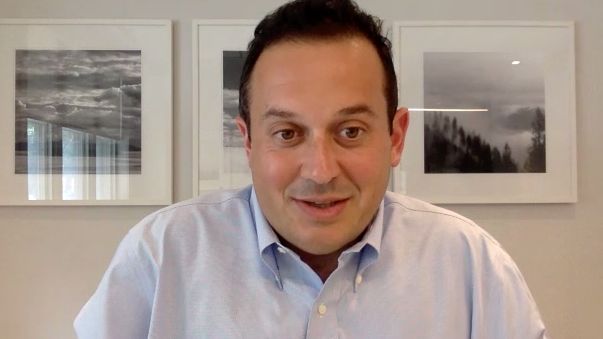Two St. Petersburg based state lawmakers from both sides of the political aisle are still unhappy and confused that Gov. Ron DeSantis vetoed a bill (SB 146) last week that called for a civic literacy program that would be included in high school government classes.
What You Need To Know
- The bill was passed unanimously through the state legislature
- The program based at USF-St Pete will continue to receive funding
- A spokesman for the governor says that it doesn’t contain protections against politicized “action civics”
- More Politics headlines
“Every member of the Legislature voted for this,” noted Ben Diamond, the Pinellas County based state representative who sponsored the bill in the Florida House. Republican Jeff Brandes, who sponsored the bill in the Senate, said the proposal was essentially creating “the Eagle Scouts program for civics” that could give students real life experiences to intern and “build some advocacy for something that you believe in and work the process to get your ideas heard.”
But social conservatives called on DeSantis to veto the legislation, none more prominently than National Review columnist Stanley Kurtz.
Kurtz labeled the legislation a “stealth protest-civics bill – or “action civics,” writing that it's a “practice that grants course credit for student political protests and lobbying, almost invariably for leftist causes.”
In his letter in announcing his veto of SB 146, DeSantis wrote that the bill “seeks to further so-called ‘action civics’ but does so in a way that risks promoting the preferred orthodoxy of two particular institutions.”
“I don’t understand what that is,” says Brandes.
The bill would have created a “Citizen Scholar” program that would be headquartered at the USF St. Petersburg Center for Civic Engagement. It called for USFSP to contract with the YMCA to provide students participating in the Youth and Government Program the opportunity to earn undergraduate credit and the designation of “Citizen Scholar.’”
Diamond said that he had communicated with members of the governor’s staff who indicated that DeSantis intended to sign the bill, so he says he was startled to learn later that he was vetoing it.
“It was more important for the governor to score some points with a right-wing blogger who totally mischaracterizes what this legislation does, than to actually read the bill and do something good for high school students in Florida, and that is just so disappointing to me,” says Diamond, who has already announced his candidacy for the congressional seat being vacated by Charlie Crist in Pinellas County next year.
Some conservative critics are linking the term “action civics” with critical race theory, the academic concept which Education Week defines as “racism is not merely the product of individual bias or prejudice, but also something embedded in legal systems and policies.” The Florida Board of Education passed a rule banning the instruction of critical race theory in public classrooms last month, as have a handful of other states with GOP-controlled legislatures (with more than a dozen other states considering them).
“The way that I have put it is that critical race theory teaches you why you should hate America and protest against it. Action civics teaches you how to protest against it most effectively,” says David Randall, the director of the National Association of Scholars. “The point of action civics is to promote social justice.”
Kurtz says that his criticism stemmed from the fact that the program contracts with the YMCA, which he says is not a politically neutral organization.
“As I noted in one of my pieces, the YMCA Changemakers Institute provides avenues for student political activism that are heavily biased toward one side of the political spectrum,” Kurtz wrote Spectrum Bay News 9 last Friday in an email. “The Y’s program on ‘Unlearning Systemic Racism’ also takes sides on the current controversy over whether America is a ‘systemically racist’ country. Florida’s taxpayers should not be subsidizing student political activism for course credit.”
Diamond says that’s not what's in the bill.
“This is a program run by the YMCA – one of the greatest institutions in our community,” he says. “And they hosted in conjunction with USFSP and high school students come from around the state. And our whole legislative delegation comes and meets with these kids. Members of both parties. My friends like the Speaker (Republican Chris Sprowls), Sen. Brandes, myself, Democrats. Republicans.”
When asked about the veto, USF spokesperson Adam Freeman said that USF was “very grateful” that DeSantis and the Legislature had again approved funding in this year’s state budget for the Youth and Government program.
Jason Mahon, deputy communications director for Gov. DeSantis, reiterated today in a written statement that the bill lacked protection against “action civics.”
“Governor DeSantis is committed to strengthening civics education for Florida students and has made education a top priority of his administration. As the Governor has consistently made clear in his public remarks, the classroom is not an appropriate venue for partisan political activism.
“The Governor vetoed SB 146 because the legislation did not contain protections against politicized “action civics” – and therefore, there was a risk it could be used to bring political indoctrination and activism into public school classrooms.”



